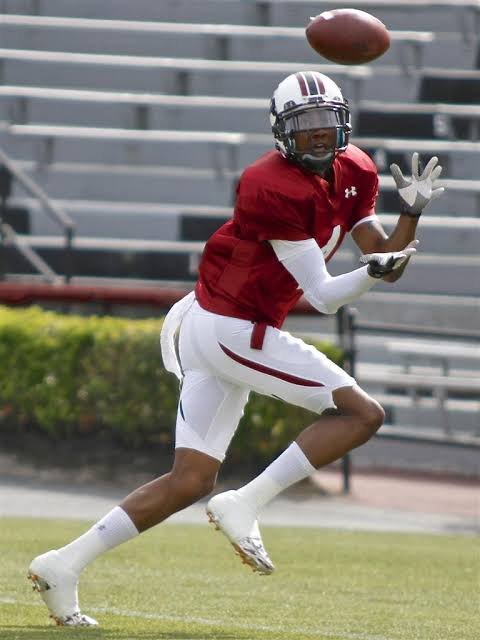From High School Star to Hard Lessons: Shaq Roland’s Journey Comes Full Circle
Shaq Roland didn’t just arrive at South Carolina as a recruit—he was seen as the next great Gamecock.
His path to stardom felt inevitable. The only questions? Would he be an All-American at wide receiver or defensive back? Would he shine in both football and basketball?
Coming out of Lexington High School, Roland was a four-star prospect and a Top-50 recruit in the Class of 2012. His senior season numbers were staggering: 79 catches, over 1,500 yards, and 30 total touchdowns. It was no shock when he was named South Carolina’s Mr. Football in 2011, following in the footsteps of Stephon Gilmore (2008), Marcus Lattimore (2009), and Jadeveon Clowney (2010)—all of whom became All-Americans at South Carolina.
Roland expected to continue that legacy.
“South Carolina has been on the rise, and I want to be a part of it,” Roland said after winning the Mr. Football award. “I hope I can help them win a conference championship and even a national championship.”

Fast-forward 13 years later, and Roland is standing on the field at Brookland-Cayce High School, wrapping up a football camp where he’s coaching young players. Looking back, what advice would he give his 18-year-old self?
He pauses, then offers an honest reflection:
“I don’t think nobody could have told me (anything),” Roland said. “You can tell me your experience, but you can’t tell me how I’m going to react to the hype.”
Where It Went Wrong
Roland arrived at South Carolina thinking he could dominate college football the same way he did in high school. The truth hit hard.
“Shaq was the most talented receiver I ever played with,” said former Gamecocks QB Perry Orth (2013-16). “Shaq was just crazy gifted.”
In high school, Roland didn’t have to grind like everyone else. He didn’t need extra film study or practice reps—he just put on the pads, and his athleticism did the rest.
That approach didn’t work in the SEC.
Bruce Ellington and Ace Sanders had to teach him how to be a receiver. “I thought I could just run around people… I had no technique, no skill. That didn’t work, and I learned that early,” Roland admitted.
But the learning curve wasn’t just about football—it was about discipline.
As a freshman, Roland caught just five passes. By his sophomore season, he was making an impact—but a three-game suspension for breaking team rules overshadowed his progress. As a junior, his numbers dipped again, and he missed another game after showing up late to meetings before a Kentucky trip.
“It just couldn’t click,” Orth said. “He’d be the first to tell you—he had some friends from high school who weren’t leading him down the right path, and he got himself in some trouble.”
Then came the end.
After a loss to Clemson in 2014, Roland walked away from South Carolina football.
“When stuff went wrong, I may get down,” Roland admitted. “And my play reflected that. If I would have just stayed even-keeled, then I would’ve been ready for the next level.”
His journey after USC was full of twists and turns.
He transferred to Prairie View A&M but never played. He took classes at Winston-Salem State before making a brief return to football at Division II West Georgia, where he had a solid season.
NFL opportunities came and went. He had month-long stints with the Chicago Bears (2018) and the Arena Football League’s Baltimore Brigade (2019) before his playing career ended for good.
A New Passion
More than a decade later, Roland holds no grudges.
“Whatever went wrong, it was my fault,” he said. “That’s how I sum it up.”
For a while, watching football was tough. But eventually, he found a way back—through coaching.
Over the past year, Roland has been training young athletes, running football camps alongside former Gamecock QBs Perry Orth and Stephen Garcia.
“He’s fantastic,” Orth said. “He’s very articulate. He understands the game. He’s very descriptive in what he’s trying to get across.”
At a recent camp, after just three hours of coaching, a group of receivers huddled around Roland—phones out, eager to get his number or Instagram.
Now, he’s building Top Five Elite Training, working with the next generation.
And this time, he’s got a message for them.
“They think, ‘Oh, you’re good? You’re gonna make it,’” Roland said. “Honestly, I was good. But I didn’t work as hard as I needed to. And that was my downfall.”



